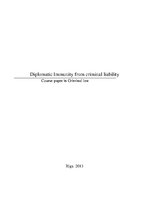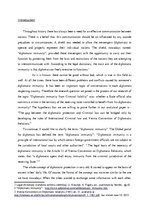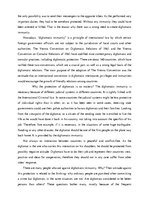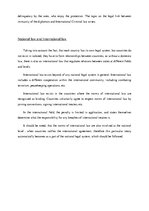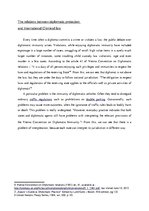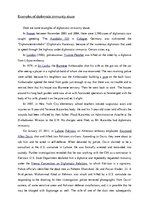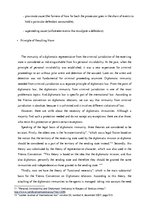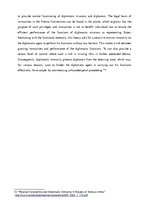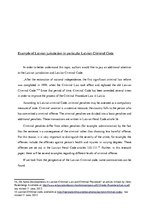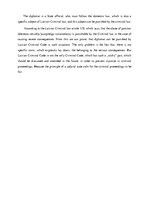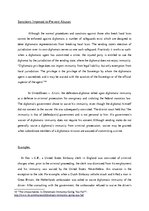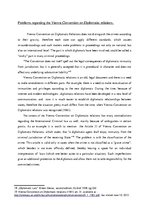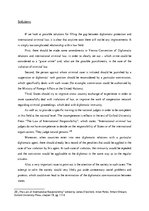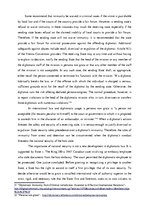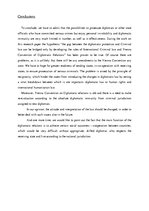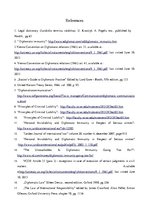-
Diplomatic Immunity from Criminal Liability
Conclusions
To conclude, we have to admit that the possibilities to prosecute diplomats or other state officials who have committed serious crimes but enjoy personal inviolability and diplomatic immunity are very much limited in number, as well as in effectiveness. During the work on this research paper the hypothesis “the gap between the diplomatic protection and Criminal law can be bridged only by developing the rules of International Criminal law and Vienna Convention of Diplomatic Relations” has been proven to be true. Of course there are problems, as it is unlikely that there will be any amendments to the Vienna Convention any soon. We have to hope for greater readiness of sending states, in co-operation with receiving states, to ensure prosecution of serious criminals. The problem is arised by the principle of reciprocity, which hinder the states from introducing the changes in diplomatic law by setting a strict breakdown between which is ore important- diplomatic law or human rights and international humanitarian law.
Moreover, Vienna Convention on Diplomatic relations is old and there is a need to make re-evaluation according to the absolute diplomatic immunity from criminal jurisdiction assigned to new diplomats.
In our opinion, the attitude and interpretation of the law should be changed, in order to better deal with such issues, also in the future.
And one more time, we would like to point out the fact that the main function of the diplomatic relations is to achieve certain social outcomes – cooperation between countries, which would be very difficult without appropriate, skilled diplomat, who respects the receiving state and live according to the national jurisdiction.
…
We have to admit that the possibilities to prosecute diplomats or other state officials who have committed serious crimes but enjoy personal inviolability and diplomatic immunity are very much limited in number, as well as in effectiveness. During the work on this research paper the hypothesis “the gap between the diplomatic protection and Criminal law can be bridged only by developing the rules of International Criminal law and Vienna Convention of Diplomatic Relations” has been proven to be true. Of course there are problems, as it is unlikely that there will be any amendments to the Vienna Convention any soon. We have to hope for greater readiness of sending states, in co-operation with receiving states, to ensure prosecution of serious criminals. The problem is arised by the principle of reciprocity, which hinder the states from introducing the changes in diplomatic law by setting a strict breakdown between which is ore important- diplomatic law or human rights and international humanitarian law. Moreover, Vienna Convention on Diplomatic relations is old and there is a need to make re-evaluation according to the absolute diplomatic immunity from criminal jurisdiction assigned to new diplomats. In our opinion, the attitude and interpretation of the law should be changed, in order to better deal with such issues, also in the future. And one more time, we would like to point out the fact that the main function of the diplomatic relations is to achieve certain social outcomes – cooperation between countries, which would be very difficult without appropriate, skilled diplomat, who respects the receiving state and live according to the national jurisdiction.

